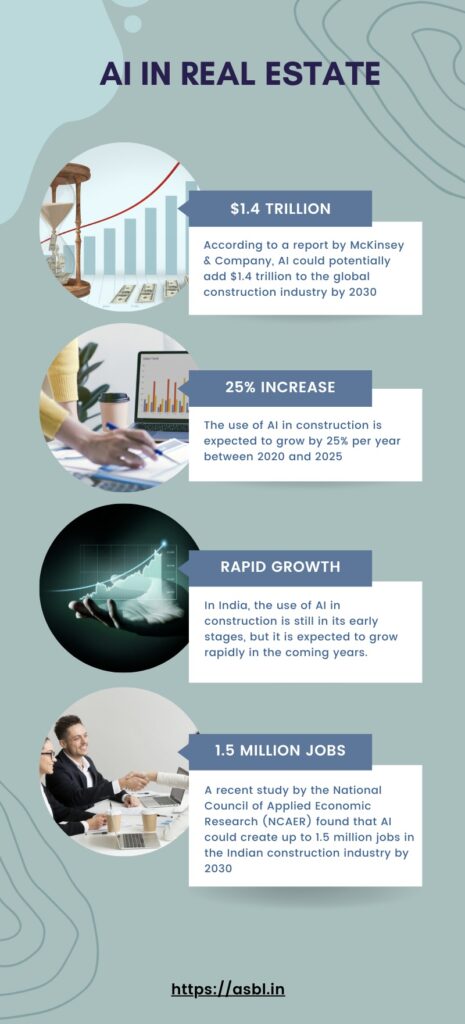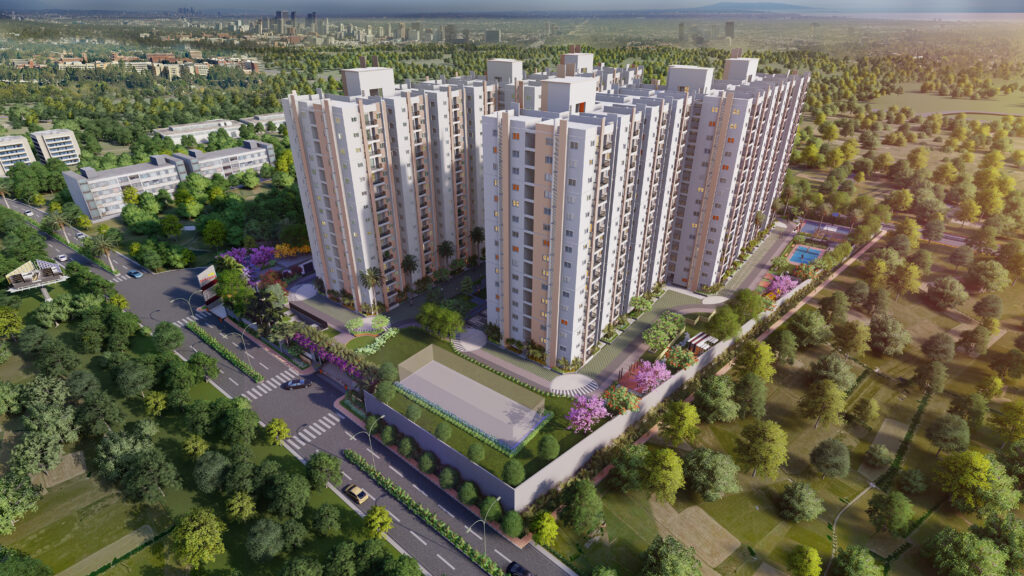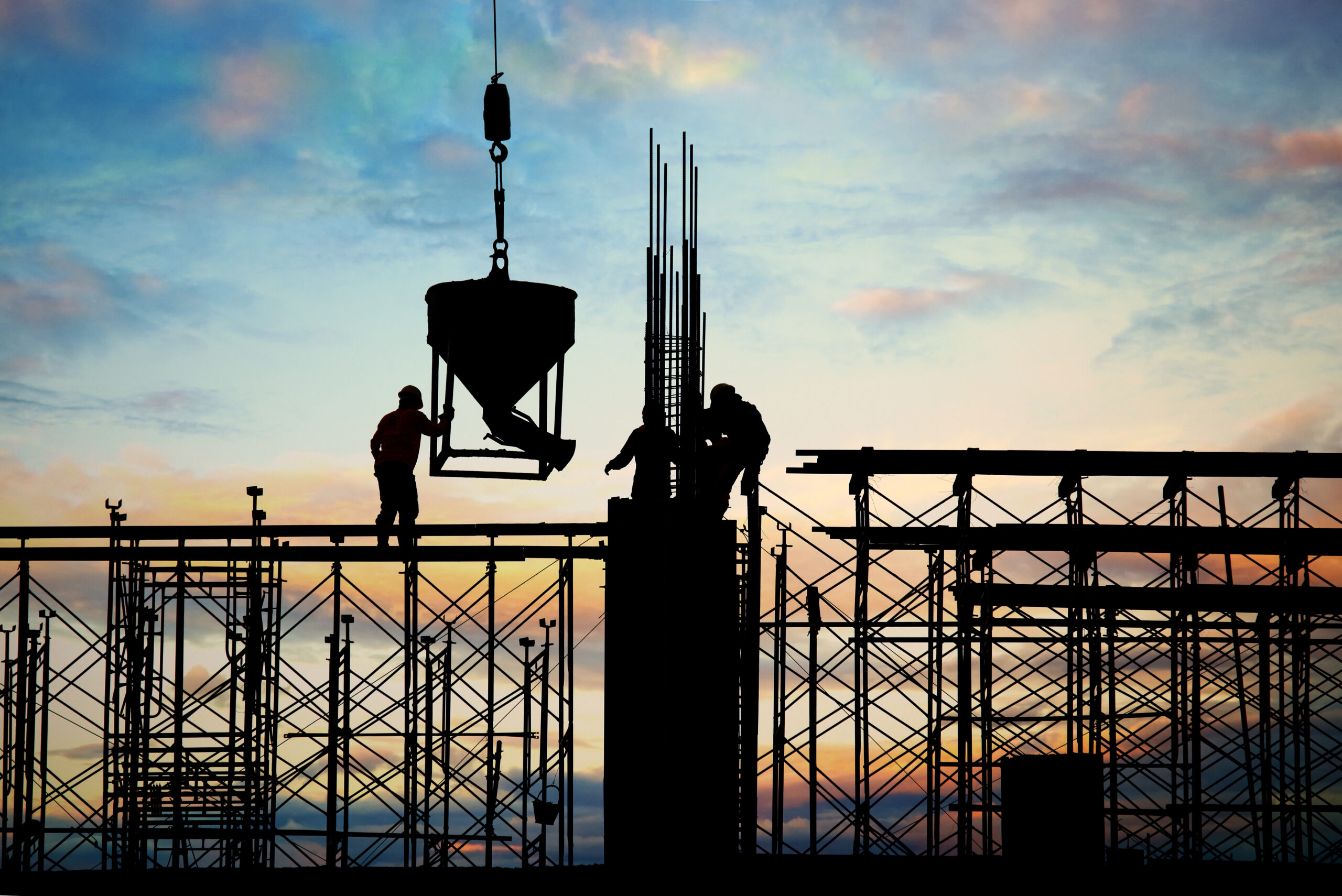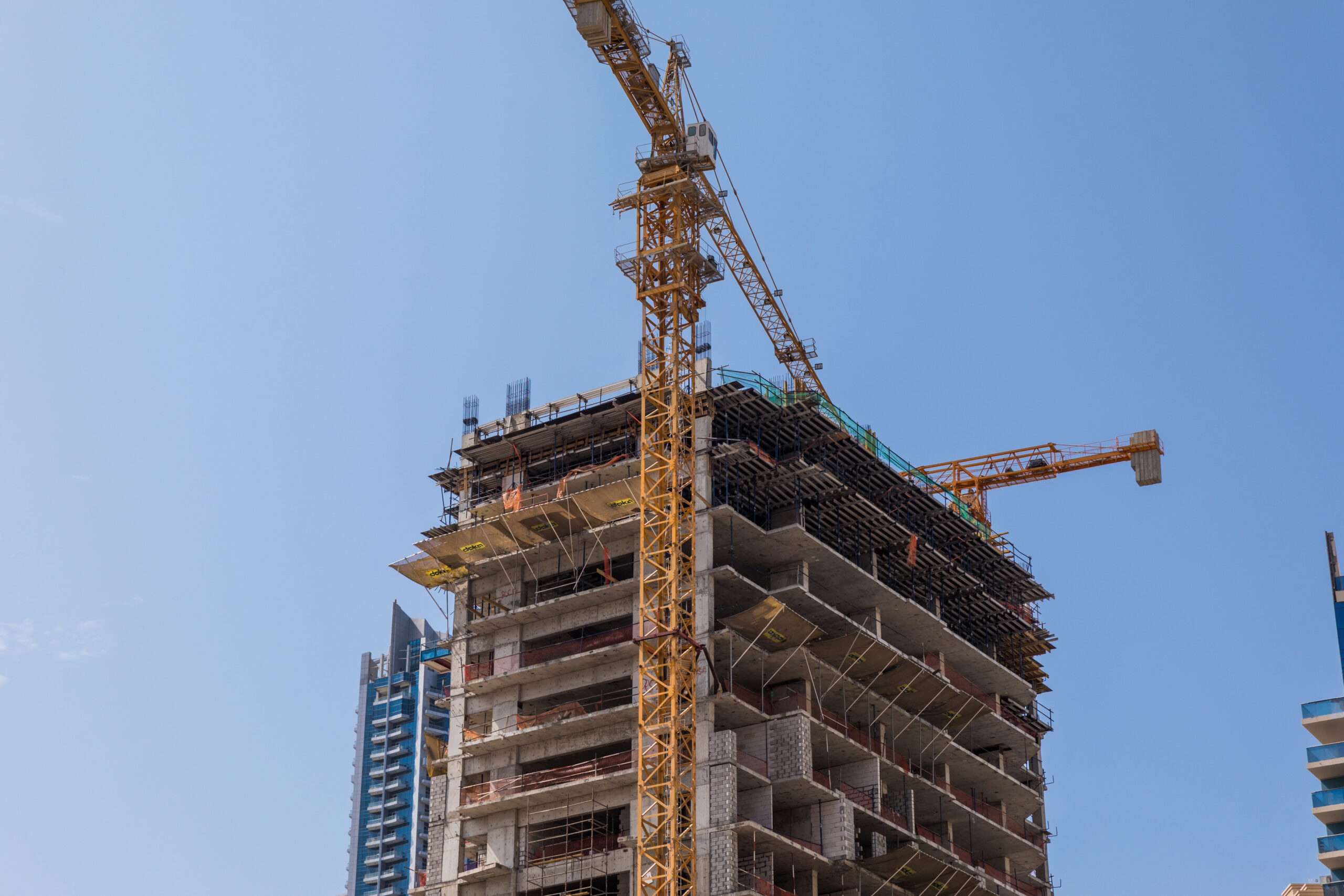Streamlining Construction Processes in the Real Estate Sector with AI
Introduction: The real estate sector is undergoing a transformative shift, driven by advancements in technology. Among these technological innovations, artificial intelligence (AI) stands out as a powerful tool that is revolutionising project management in construction. AI-powered project management systems are streamlining processes, improving efficiency, and driving better outcomes in real estate development. In this blog post, we will explore how AI is reshaping project management in the real estate sector and the benefits it brings to construction processes.
AI-enabled Planning and Design:
AI is making significant contributions to the planning and design phases of construction projects. With machine learning algorithms and data analytics, AI systems can analyse vast amounts of information, including architectural blueprints, construction codes, and historical project data, to generate accurate project plans. These AI systems can optimise layouts, suggest material choices, and forecast potential risks, enabling developers to make informed decisions and design structures that are both functional and cost-effective.
- AI-enabled planning and design is a rapidly growing field that is having a major impact on the construction industry. In Hyderabad, India, a number of real estate developers are already using AI-powered tools to improve the efficiency and effectiveness of their planning and design processes.
- One of the most promising applications of AI in construction planning and design is building information modeling (BIM). BIM is a digital representation of a building or infrastructure project that can be used to simulate and analyze different design options. AI-powered BIM tools can help developers to identify and mitigate potential risks, optimize layouts, and make better informed decisions about materials and construction methods.




Efficient Resource Management:
Managing resources effectively is crucial in the rapidly growing real estate market in Hyderabad. The city is home to a large number of construction projects, and the demand for resources can be volatile. This makes it difficult for real estate developers to plan their resource needs and avoid delays and cost overruns.
AI-powered project management tools can help real estate developers to more effectively manage their resources. These tools can analyse project requirements, resource availability, and timelines to optimise resource allocation. They can also help to identify bottlenecks, allocate resources efficiently, and reduce wastage. In addition, AI algorithms can predict demand fluctuations, allowing real estate developers to proactively adjust their resource plans to avoid delays or shortages.
For example, a recent study by the National Real Estate Development Council found that real estate developers who used AI-powered project management tools were able to reduce their resource costs by an average of 10%. The study also found that these developers were able to complete their projects on time and within budget more often than those who did not use AI-powered tools.
Intelligent Risk Assessment:
Construction projects are inherently risky, and the real estate market in Hyderabad, India is no exception. The city is home to a large number of construction projects, and the risks associated with these projects can vary widely. This makes it difficult for real estate developers to identify and mitigate risks effectively.
AI-powered risk assessment models can help real estate developers to more effectively identify and mitigate risks. These models can analyze historical data, project parameters, and external factors to identify potential risks and predict their likelihood. This information can then be used by project managers to take proactive measures to mitigate risks and improve overall project safety and success.
For example, an AI-powered risk assessment model could be used to identify the following risks associated with a real estate construction project in Hyderabad, India:

- Weather-related delays: The city of Hyderabad experiences a monsoon season from June to September, during which time heavy rains can cause flooding and landslides. This could delay construction projects or even cause them to be abandoned altogether.
- Labor shortages: The construction industry in India is facing a shortage of skilled labor. This could lead to delays in construction projects as well as increased costs.
- Material shortages: The construction industry is also facing a shortage of materials, such as cement and steel. This could also lead to delays and cost overruns.
By identifying and predicting these risks, real estate developers can take steps to mitigate them and improve the chances of project success. For example, they could build in buffer time for weather-related delays, or they could sign contracts with suppliers that guarantee the delivery of materials on time.
In addition to helping to identify and mitigate risks, AI-powered risk assessment models can also be used to optimize insurance coverage and facilitate better decision-making in risk management. For example, a model could be used to calculate the cost of different insurance policies and recommend the one that best suits a particular project. The model could also be used to track the performance of different insurance policies over time and identify areas where coverage could be improved.
Overall, AI-powered risk assessment models can provide significant benefits for real estate developers in Hyderabad, India. These models can help to improve safety, reduce costs, and increase the chances of project success. As the real estate market in Hyderabad continues to grow, the use of AI in risk assessment is likely to become even more widespread.
Enhanced Quality Control:
Ensuring high-quality construction is essential for real estate developers in Hyderabad. The city is home to a number of large-scale construction projects, and the quality of these projects can have a significant impact on the value of the properties they produce.
AI-powered systems can help real estate developers to enhance quality control in a number of ways. These systems can monitor construction processes in real-time using sensors and cameras. They can detect anomalies, identify potential defects, and provide instant alerts, enabling early intervention to prevent quality issues. For example, an AI-powered system could be used to monitor the pouring of concrete. The system could detect if the concrete is not being mixed properly or if it is not being poured at the correct temperature. This information could then be used to stop the pouring of concrete and prevent defects from occurring.
AI algorithms can also analyze data collected from sensors and devices to identify patterns and predict maintenance needs. This allows for proactive maintenance and reduces the risk of costly repairs. For example, an AI algorithm could be used to analyze data from sensors that monitor the performance of building components. The algorithm could identify components that are at risk of failure and recommend preventive maintenance. This could save real estate developers a significant amount of money in the long run.
The use of AI-powered systems for quality control is still in its early stages in the real estate industry in Hyderabad, India. However, the potential benefits of these systems are significant. As the industry continues to grow and the demand for high-quality construction increases, AI-powered systems are likely to become increasingly important.
Real-time Project Tracking:
Real-time project tracking is essential for real estate developers in Hyderabad. The city is home to a number of large-scale construction projects, and the ability to track progress and identify potential problems in real-time can help to ensure that projects are completed on time and within budget.
AI-powered project management platforms can offer real-time tracking and monitoring capabilities. By integrating data from various sources such as sensors, wearables, and project management software, these systems provide accurate insights into project progress, resource utilisation, and budget status. This information can be used by project managers to identify delays or deviations promptly, make informed decisions, and take corrective actions to keep projects on track and within budget.
For example, an AI-powered project management platform could be used to track the progress of a construction project by integrating data from sensors that monitor the status of construction equipment and materials. The platform could also track the progress of individual tasks by integrating data from wearables that are worn by construction workers. This information could then be used by project managers to identify delays or deviations in the project schedule and take corrective actions to keep the project on track.
In addition to tracking progress, AI-powered project management platforms can also be used to monitor resource utilisation and budget status. This information can be used by project managers to ensure that resources are being used efficiently and that the project is not overspending. For example, an AI-powered project management platform could be used to track the hours that construction workers are working and the materials that are being used. This information could then be used by project managers to identify areas where resources are being underutilised or overutilised and take corrective actions to improve efficiency.
The use of AI-powered project management platforms for real-time project tracking is still in its early stages in the real estate industry in Hyderabad. However, the potential benefits of these platforms are significant. As the industry continues to grow and the demand for more efficient and effective project management increases, AI-powered project management platforms are likely to become increasingly important.
Predictive Analytics for Decision-making:
Predictive analytics is a powerful tool that we at ASBL use as real estate developers to make better decisions about their construction projects. By analysing historical data, market trends, and project performance, AI algorithms can generate forecasts for project timelines, costs, and risks. These predictive models provide a solid foundation for effective decision-making, enabling project managers to make data-driven choices that maximise efficiency and minimise risks.
For example, our AI-powered predictive analytics model, Inncircles Arena could be used to forecast the time it will take to complete a construction project. The model could analyse historical data on the time it took to complete similar projects, as well as market trends and weather patterns. This information could then be used to generate a forecast for the project timeline.
In addition to forecasting project timelines, these models can also be used to forecast project costs and risks. For example, a model could be used to forecast the cost of materials, labor, and equipment for a construction project. The model could also be used to forecast the likelihood of delays, cost overruns, and accidents. This information could then be used to make decisions about how to allocate resources, manage risks, and control costs.
Conclusion
AI-powered project management systems are transforming the real estate sector by streamlining construction processes, improving efficiency, and enhancing decision-making. With AI’s capabilities in planning, resource management, risk assessment, quality control, and real-time tracking, real estate developers can drive better project outcomes, reduce costs, and enhance overall productivity. As AI continues to evolve, its integration into project management practices will become even more critical, making it an indispensable tool for the real estate construction industry.
By harnessing the power of AI, real estate developers can unlock new possibilities, achieve greater operational excellence, and shape a future where construction projects are executed with unparalleled efficiency and success.
Check out ASBL Spire, ASBL Springs and ASBL Spectra
It streamlines project management processes, improves efficiency, enhances decision-making, and drives better project outcomes. It enables accurate project planning and design, efficient resource management, intelligent risk assessment, enhanced quality control, and real-time project tracking. By harnessing the power of AI real estate developers can reduce costs, enhance productivity, and achieve greater operational excellence.
AI is important in the real estate sector due to its transformative impact on project management processes. It enables real estate developers to leverage machine learning algorithms and data analytics to optimize planning, resource allocation, risk assessment, quality control, and project tracking. AI improves decision-making by providing accurate forecasts and insights based on historical data, market trends, and project performance. By embracing AI, real estate developers can enhance efficiency, reduce costs, and drive better outcomes.
- Building Information Modeling (BIM): AI-powered BIM tools optimize design options, identify risks, and improve decision-making in real estate construction projects.
- Predictive Analytics Platforms: These platforms leverage AI algorithms to generate forecasts for project timelines, costs, and risks, enabling data-driven decision-making.
- Real-Time Monitoring Systems: AI-powered systems using sensors and cameras detect anomalies, identify defects, and provide instant alerts for proactive quality control.
- Resource Management Software: AI-powered tools analyze project requirements, resource availability, and timelines to optimize resource allocation, reduce wastage, and predict demand fluctuations.
- Risk Assessment Models: AI-powered risk assessment models analyze historical data, project parameters, and external factors to identify and mitigate risks effectively, improving project safety and success.
Technology is disrupting the real estate industry by revolutionising project management practices. Advancements such as AI, virtual reality (VR), and data analytics are streamlining processes, improving efficiency, and enhancing decision-making. AI enables accurate planning, resource optimisation, risk assessment, quality control, and real-time tracking. VR is transforming property showcasing and virtual property tours, enhancing customer experiences. Data analytics provides valuable insights for market trends, investment opportunities, and risk evaluation. Technology-driven disruption empowers real estate developers to achieve greater operational excellence, cost reduction, and project success.
Virtual reality (VR) is extensively used in the real estate industry for various purposes. It enhances property showcasing, customer experiences, and decision-making. VR technology allows potential buyers to take virtual property tours, enabling them to explore properties remotely and make informed decisions. Real estate developers can create immersive and interactive 3D virtual models that showcase properties realistically. VR also enables architects and designers to visualize and present their design concepts effectively. By leveraging VR, the real estate industry can overcome geographical barriers, enhance marketing strategies, and provide unique experiences to clients.













